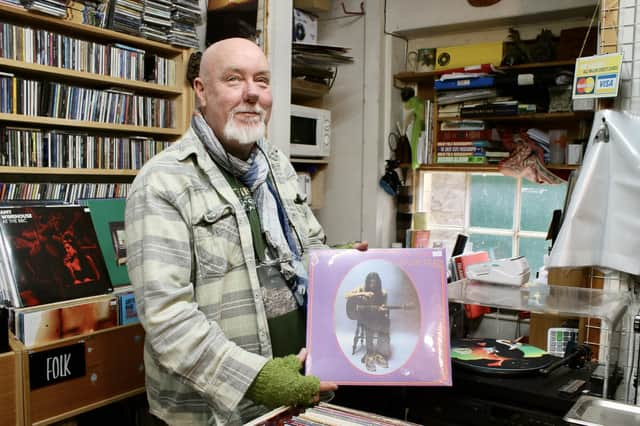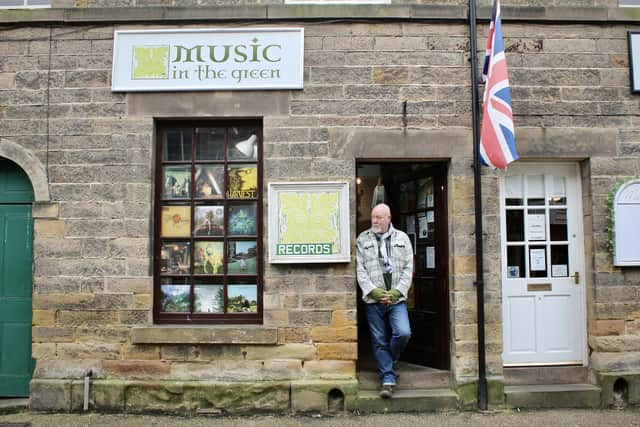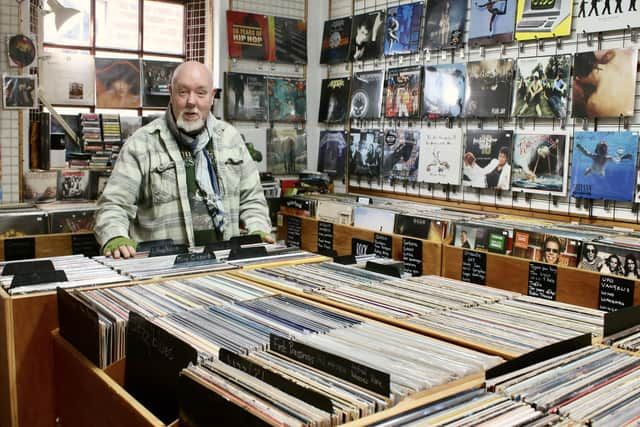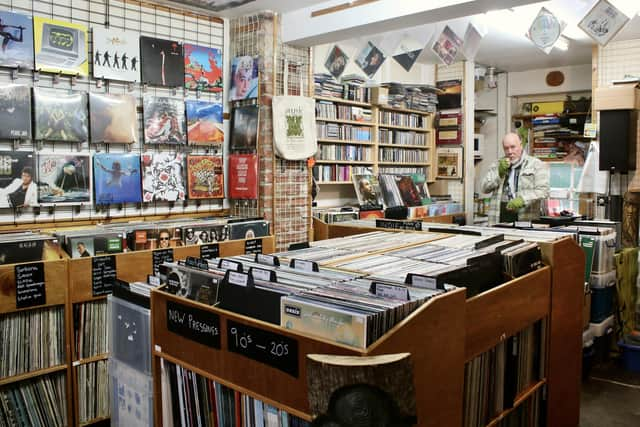From psychotherapy to a Derbyshire record shop: “What music has always done for me”


Steve Free, of Bakewell’s Music In The Green record shop, laughs as he says this, adding “You can see they don’t really believe you, but the parents are usually nodding”.
Steve’s first record was Slade’s Cum On Feel The Noize, and fifty years on, he still remembers. When asked what it is with music and memory, Steve smiles.
Advertisement
Hide AdAdvertisement
Hide Ad“That part in Harry Potter where there’s those memories in little balls, and you can’t see the end of the row, you can’t see how high it is. I think that’s a great way of thinking how your memories are. Everything you ever experienced is stored. You can’t always find it, but when you do, it’s there.”


And the meaning? “Second-hand records… The number of times you open a record and on the inside or somewhere there’s a letter. Or ‘happy birthday’. Or ‘on our anniversary’. They’ve got real history to them.”
This history can also carried forward. Steve talks of when a record collection from a lost loved-one is brought into the shop.
“You’re taking something very personal from someone. I’m a big one for saying ‘We’ll pass this on, someone will now take these Neil Young records and love them like your husband did’. And you can see it, it helps people. It really does.”
Advertisement
Hide AdAdvertisement
Hide AdWhen asked what music brings to him, Steve tells of his background before opening the shop ten years ago, the conversation taking a dramatic turn.


“I was a forensic psychotherapist. So that’s working with mentally disordered offenders. That’s prisons, secure hospitals. And for 17 years I specialised in the treatment of severe personality disordered offenders. What you would know as psychopaths. One or two, infamous…”
“Music’s always been there to help me get through really… Certainly for me as a therapist, it was that release, that escape into whatever world you wanted to go into. And going to watch live music, and going to festivals, it becomes almost a way of life.”
“There was one stage, I was probably doing twenty festivals a year, so that became a big part of what I was doing… You’re just totally immersed in the festival while you’re there. You don’t know what’s going on in government, or the world. You can just escape from absolutely everything.”
Advertisement
Hide AdAdvertisement
Hide Ad“And for me, if I’d finished working with my patients, at the end of the week I just wanted to be in a different head-space, and that’s what music has always done for me.”


Probably a difficult question, but does Steve have a favourite gig? “Easy! Knebworth, 1986. Queen. Probably 180,000 people there. We were probably row 80,000. A lot of people in front of us. A lot of people behind us. It was an amazing gig.”
“And the thing I can still remember is them doing Radio Ga Ga, you know, with the clap. And the people at the front clapped a millisecond in front of everybody else… a wave of clapping. And it was like ‘Woah! You don’t need drugs! Woah!’”
The bridge from forensic psychotherapist to record shop owner began in 2011. “I took a stall in the market. Mainly selling second-hand CD’s… and I just thought ‘Let’s see what happens’. I was working full-time doing my other work, but the market was my favourite day of the week.”
Advertisement
Hide AdAdvertisement
Hide Ad“I could play my music, talk with people, sell a few CD’s… it was just wonderful. So that’s how it started. And then I hit 55 and retired… And then I thought, ‘Right, I’m going to open a record shop!’. Oh, how they laughed. That was the response from most people I knew. ‘What? A record shop? No-one’s buying records!’”
“I’ve been here ten years now. Something in my water said ‘Vinyl’s gonna start’.”
For sure. But why are vinyl LP’s still so popular? Steve smiles.
“I think it’s a response to this idea that everything is at your fingertips,” he says. “It’s all there at a touch of a button, blah blah blah… Whether that’s a book through a Kindle, whether it’s music through Spotify. But you have nothing tangible.”
Advertisement
Hide AdAdvertisement
Hide Ad“And with the way society is changing… We used to live round the corner from mum and dad, aunty, uncle, grandparents. There was all that sense of community. That’s gone. I live here, I’ve got one daughter in Stockton-on-Tees, I’ve got one daughter in Blackpool, my family are from the outskirts of Liverpool. Everyone’s spread out. I’ve got other family in South Wales.”
“So, because we moved away, what gets you through life are things that are going to ground you. Keep you centred. Keep you focussed in on things. And I think having a book, or having a record is part of that kick-back against everything just being so disposable and throw-away and transient.”
“I’m selling some records now that are fifty, sixty years old. Getting close to being antiques. And the people that walk out this shop with that record, they hold it, it’s theirs.”
Steve pauses, smiles. “I often say to people as well, ‘The way things are at the moment, don’t be surprised if Russia press a button and all the internet gets deleted!’ And we’ll be laughing. We’ll be sat there with our records and our record players… we’ll still be able to play music!”
Advertisement
Hide AdAdvertisement
Hide AdIndeed. Able to use music as an escape, a memory maker, and a lifestyle. From behind the counter, Steve holds both hands out, waves an LP sized circle to the shop and laughs.
“I go to work to listen to music, that’s not a job!”